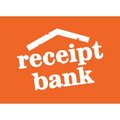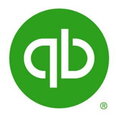How to Keep Your Business and Personal Finances Separate
Keeping your business and personal finances separate from each other is a crucial step when beginning as an entrepreneur. In fact, your budget, tax plan and many other aspects of your company revolve around the distinction between the two. Here are a few ways you can keep these two components separate and ensure that your finances are organized:
- Register your business;
- Open a business bank account;
- Consider a business credit card;
- Set up utility accounts in the company name;
- Pay yourself a salary;
Register your business.
As you are probably aware, there are many different business structures to choose from when starting a business. Your taxes owed, ability to raise capital, and personal liability in the company are all dependent on this decision. For example, by structuring your business as a corporation or Limited Liability Company (LLC), as the business owner, you would have a separate legal identity from all other shareholders in your company.
Resultantly, pursuing incorporation provides the most liability protection, credibility and capital access for owners. However, incorporation is the most costly, with additional administrative requirements—such as taxes and the demand for rigorous recordkeeping—making the option only feasible for some.
Always research your options before registering your business.
Open a business bank account.
It is easy to get confused when trying to reconcile business and personal finances, which is why opening a business bank account is essential when starting a business. Having all expenses pertaining to your business tacked in the same place will spare you hours of headaches when verifying your end-of-year financial records. Organizing your monies can help simplify your personal finances as well, making financial literacy much easier as a result.
Consider a business credit card.
Obtaining a company credit card is yet another way to track the expenses of your business and further separate them from your personal finances. This becomes extremely useful when it comes to tax deductions, as it maintains solidarity between your accounts without any further records keeping.
Having a credit card for your business is also beneficial when trying to build credit for the company as an entity. Be sure to research which card would be best suited for your company, whether it be one without annual fees, a cashback card or one with travel rewards. Every card is different, and each comes with its own set of perks.
Set up utility accounts in the company’s name.
There are many tax advantages that come with starting a business, with services such as business phones, cell phones, internet, and electricity all being deductible against your annual revenue. In the case of a business operating from your own home, a portion of your home expenses, such as your mortgage or utilities, can be deducted as a business expense as well.
If you are unsure what expenses can be deducted as a business expense, consider seeking a professional accountant to help clarify any questions you may have.
Pay yourself a salary.
The easiest way to establish a boundary between your personal and business finances is by paying yourself a salary. By including yourself in the company’s payroll, you determine when and how you will withdraw funds from your business, instead of just using your business funds whenever you need them. This may be difficult when you are just beginning your venture, but becomes helpful as your business finds its footing.








